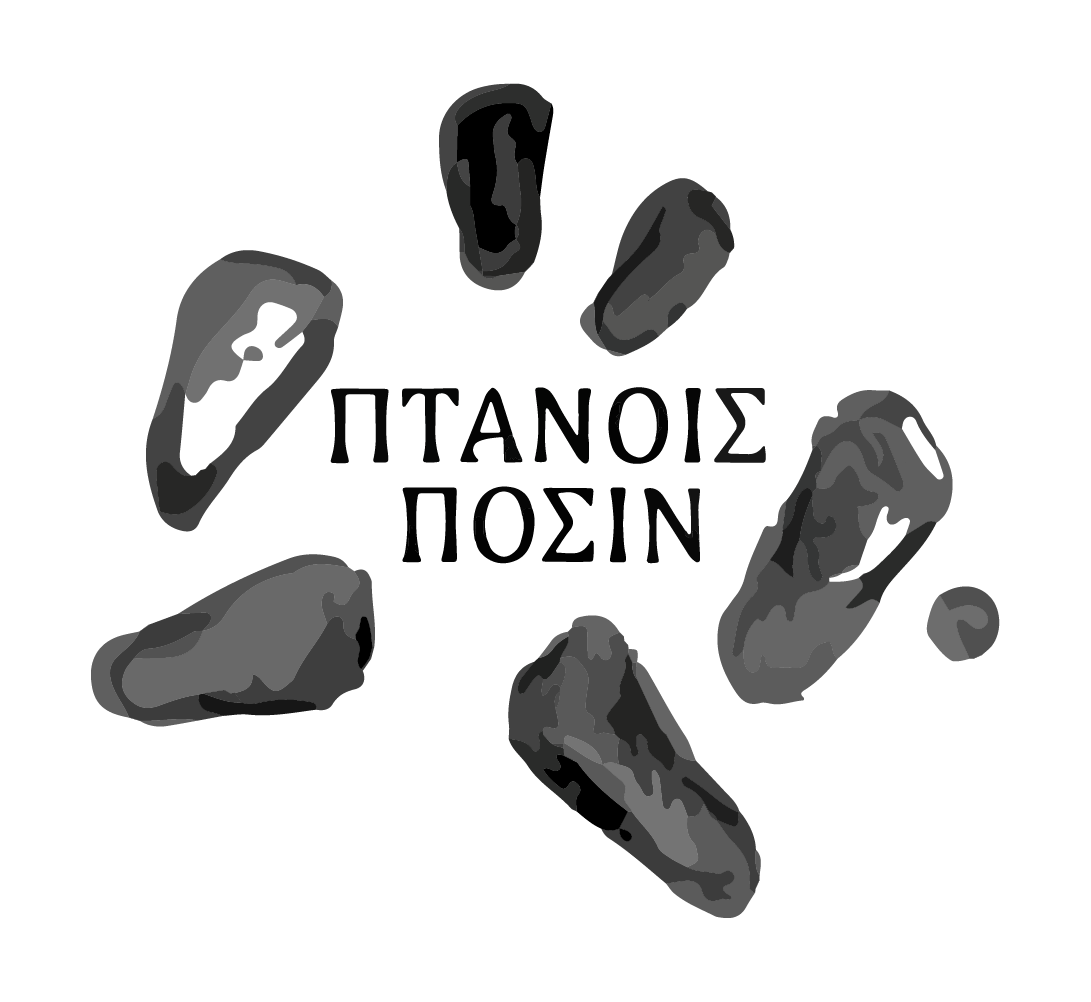SEG2 184
Hegesimachos of Athens, the son of Hegesimachos, and his son Hegesimakos: μουσικοί
Date:
171-146 BC
Edition:
Ἀντινίκου ἄρχοντος.
μηνὸς Ἑρμαίου. προξενία κεκυρωμένη. ἔδοξε τοῖς ἄ̣[ρ]
χουσι καὶ τοῖς συνέδροις Ταναγραίων· ἐπειδὴ Ἡγησίμ̣[α]-
χος Ἡγησιμάχου Ἀθηναῖος παραγενόμενος εἰς τὴν π̣[ό]-
5 λιν ἡμῶν ἔχων μεθ’ αὑτοῦ καὶ τὸν ὑὸν Ἡγησίμαχον, μου[σι]-
κὸς ὑπάρχων, ἐποεῖτο ἀκροάσεις λογικάς τε καὶ ὀργανικὰς ἐπ̣[ὶ]
πλείους ἡμέρας, ἐν αἷς εὐδοκίμησεν ποιῶν τὰ ἐν τῇ τέχνῃ δί̣[και]-
α, ἐποιήσαντο δὲ καὶ τὴν ἐπιδημίαν καὶ ἀναστροφὴν καλῶς καὶ ε[ὐ]-
σχημόνως καὶ ὡς πρέπον ἦν τοῖς ἀπὸ παιδείας ὁρμωμένοις, ὅπω̣[ς]
10 οὖν καὶ ἡ πόλις ἡμῶν φαίνηται προτιμῶσα τοὺς ἀπὸ παιδείας ὁρμωμέ[νους]
καὶ ἀπαρχομένους ἐν τῇ πόλει ἡμῶν, δεδογμένον εἶναι τῷ τ[ε συν]-
εδρίωι καὶ τῶι δήμωι ἐπαινέσαι Ἡγησίμαχον Ἡγησιμάχου Ἀθ[ηναῖον]
καὶ τὸν ὑὸν αὐτοῦ Ἡγησίμαχον ἐπὶ τῇ ἀναστροφῇ ἧι πεποί[ηνται]
καὶ τῇ εὐνοίαι τῆι πρὸς τὴν πόλιν ἡμῶν καὶ ἐπιμελείαι τῇ περὶ̣ [τὸ μά]-
20 θημα, εἶναι δ’ αὐτοὺς καὶ προξένους καὶ εὐεργέτας τῆς πόλεω̣[ς]
καὶ αὐτοὺς καὶ τοὺς ἐγγόνους αὐτῶν καὶ εἶναι αὐτοῖς ἀσυλίαν κ[αὶ ἀσ]-
φάλειαν καὶ κατὰ γῆν καὶ κατὰ θάλατταν καὶ πολέμου καὶ εἰρήν[ης οὔ]-
σης καὶ τἆλλα τίμια πάντα καθάπερ καὶ τοῖς ἄλλοις προξένοις [καὶ]
εὐεργέταις τῆς πόλεως γέγραπται· καλέ〚λε〛σαι {²⁶καλέσαι}²⁶ δ’ αὐτοὺς κα̣[ὶ ἐπὶ]
25 ξένια εἰς τὸ πρυτανεῖον ἐπὶ τὴν κοινὴν ἑστίαν, ἀναγράψαι [δὲ καὶ τό]-
δε τὸ ψήφισμα εἰς τὸν ἐπιφανέστατον τόπον τῆς ἀγορᾶς.
Translations (en):
“Under the archon Antinikos, in the month of Hermaios. Proxeny ratified. As Hegesimachos of Athens, the son of Hegesimachos, who came to our city with his son Hegesimachos, being a μουσικός, held for many days theoretical and practical demonstrations, in which he obtained good fame by performing things in a manner befitting the profession, and they dwelt and behaved in an appropriate and worthy manner and as was convenient for those who are driven by their teaching, so that our city may prove to honour those who are moved by the teaching and who offer the best to our city, it has been resolved to the synedrion and the people: to honor Hegesimachos of Athens, the son of Hegesimachos, and his son Hegesimachos, for their conduct, for their kindness towards our city, and for their diligence in teaching; they shall they be proxenoi, both themselves and their descendants, and they shall have immunity for their own property, and for their own person by land and sea, in war and peace, and all further honors bestowed on the other proxenoi and benefactors of the city. This shall be written. They shall also be invited to the ceremony of hospitality in the Prytaneion at the common hearth, and this decree shall be placed in the most prominent place of the agora.”
Translations (it):
“Sotto l’arconte Antinikos, nel mese di Hermaios. Prossenia ratificata. Sembrò bene agli arconti e ai sinedri di Tanagra: poiché Hegesimachos di Atene figlio di Hegesimachos che giunse presso la nostra città avendo con sé anche il figlio Hegesimachos, essendo un μουσικός, tenne per molti giorni degli ascolti teorici e pratici, nei quali ottenne buona fama conducendo delle esecuzioni in modo consono alla professione, ed essi soggiornarono e si comportarono in modo opportuno e dignitoso e come è conveniente a coloro che sono mossi da un progetto didattico, affinché dunque la nostra città dimostri di onorare coloro che sono sollecitati dall’attività di insegnamento e che offrono il meglio alla nostra città, è sembrato bene al sinedrio ed al popolo: di onorare Hegesimachos di Atene, figlio di Hegesimachos, e suo figlio Hegesimachos, per il comportamento che hanno tenuto, per la benevolenza nei riguardi della nostra città e la diligenza nell’insegnamento; ed essi siano prosseni ed evergeti della città, sia essi stessi sia i loro discendenti, abbiano l’immunità per i propri beni e per la propria persona per terra e per mare, in guerra e in pace, e tutti gli altri onori che sono stati stabiliti per gli altri prosseni ed evergeti della città. Si scriva. Si invitino anche alla cerimonia di ospitalità nel Pritaneo presso il focolare comune e questo decreto sia posto nel luogo più in vista dell’agora.”
Commentary (en):
The decree for Hegesimachos of Athens, written in koine, is rich in information allowing us to reconstruct the stay in Tanagra of the Athenian interpreter Hegesimakos, accompanied by his son. The presence of the son Hegesimachos, who received the same honors as his parent, does not seem accessory but the young man seems to have played a relevant role in the ἀκροάσεις held by the father. The inscription specifies that the public performances of the μουσικός Hegesimachos took place over many days, being organized in sessions of theory and practice of the traditional poetic and musical heritage.
Commentary (it):
Il decreto per Hegesimachos di Atene, scritto in koine, è ricco di informazioni utili che consentono di ricostruire il soggiorno di questo μουσικός ateniese, accompagnato a Tanagra da suo figlio. La presenza del figlio Hegesimachos, che ricevette le stesse benemerenze del genitore, non sembra accessoria ma il giovane pare aver avuto un ruolo partecipativo alle audizioni tenute dal padre. L’iscrizione specifica che le pubbliche esecuzioni del musico Hegesimachos si sono svolte nell’arco di molti giorni, essendo organizzate in sessioni di teoria e pratica poetico-musicale in cui il patrimonio tradizionale veniva plausibilmente ripercorso e dimostrato.

